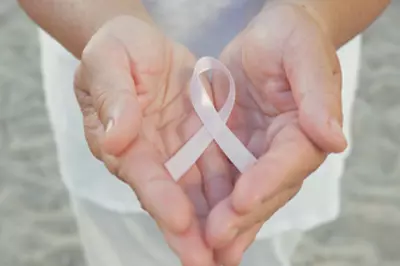October is National Breast Cancer Awareness Month

Everyone knows that a family history of breast cancer increases your risk of inheriting the disease. But lifestyle can also play a role. By making some changes in your daily life, you can significantly lower your personal risk level.
According to the National Breast Cancer Foundation, risk factors for breast cancer include diet and lifestyle factors: lack of exercise, a diet high in saturated fat, and more than two alcoholic drinks per day can all increase your chances of getting the disease. Being obese or overweight also increases the risk, so it's a good idea to follow a healthy meal plan and exercise regularly.
Developing an early detection plan is another effective way to take your healthcare into your own hands and possibly save your own life. The NBCF advises the following early detection plan:
- Beginning at age 20: Perform breast self-exams and look for any signs of change.
- Age 20 to 39: Schedule clinical breast exams every three years.
- By the age of 40: Have a baseline mammogram and annual clinical breast exams.
- Ages 40 to 49: Have a mammogram every one to two years depending on previous findings.
- Ages 50 and older: Have a mammogram every year.(Half of all women diagnosed are over the age of 65).
You can create an early detection plan at NBCF's website. They will provide you with reminders and instructions for monthly self breast exams and reminders for a clinical exam once every three years. You can also start a Personal Health Record to keep track of your appointments, test results, and self-exams over the years.
If you've never had a breast exam before, now is the time to start. National Mammography Day is Oct 22. Many cities have a mobile mammography van-check the universities and medical centers near you.